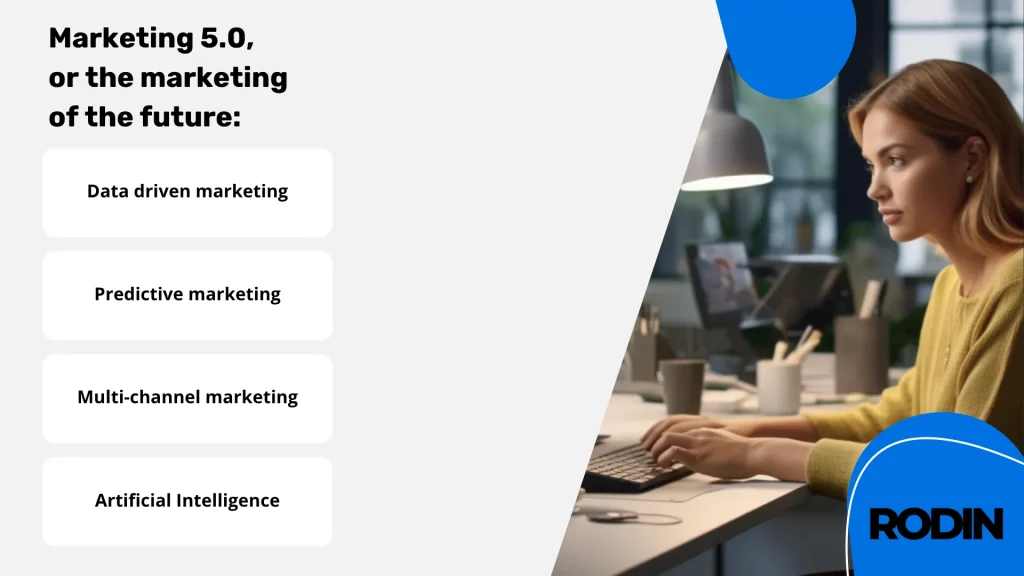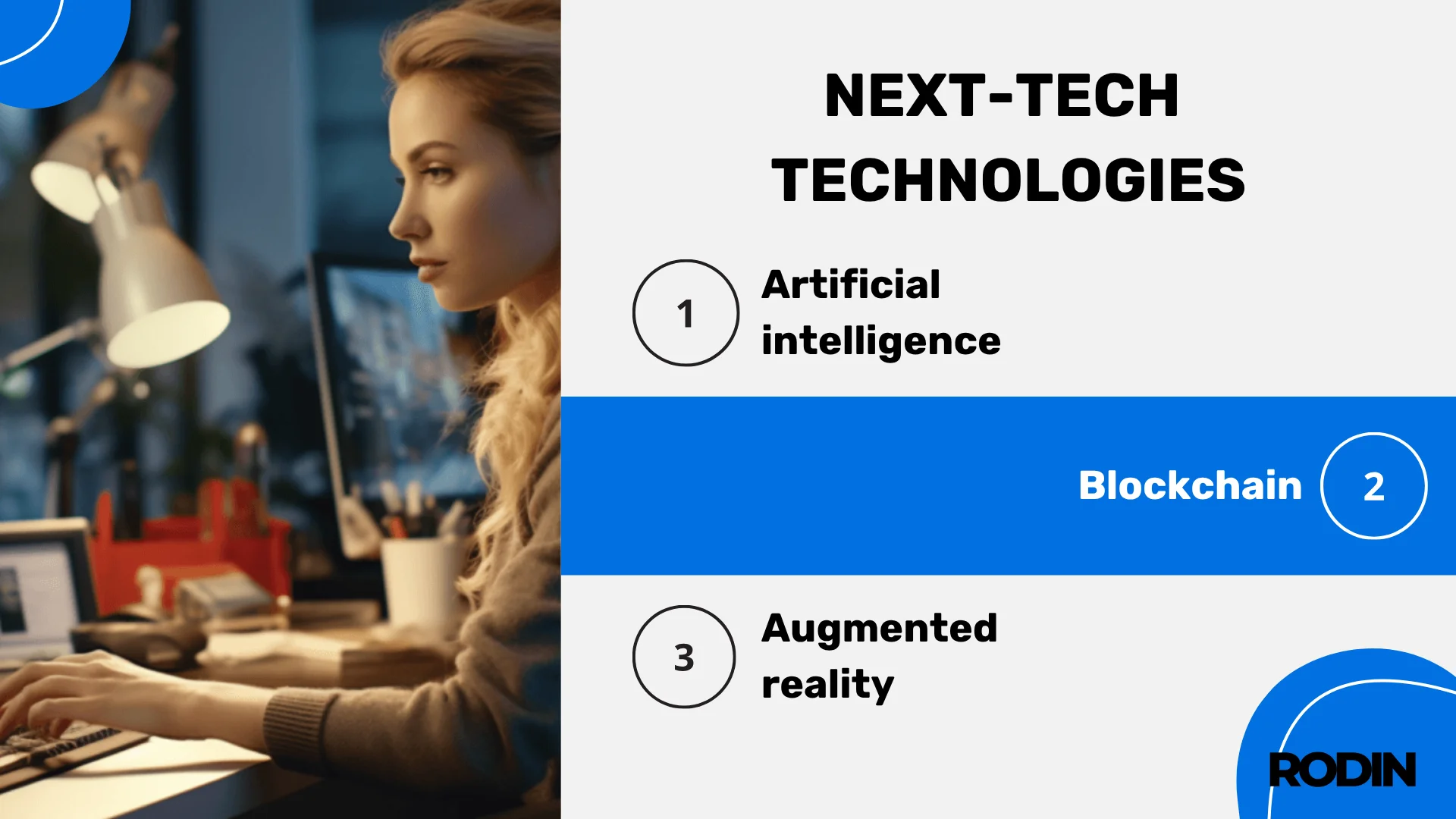The concept of Marketing 4.0 emerged in response to technological evolution and the growing needs of customers who expect increasingly personalized and interactive experiences from companies. The term Marketing 4.0 was first used in 2015 by Philip Kotler—an American economist and marketing professor who has played a key role in developing marketing theory since the 1960s.
Marketing 4.0 – characteristics
Marketing 4.0 – a contemporary marketing concept focused on customer interactions, personalized experiences, and the use of modern technologies.
One of the key assumptions of Marketing 4.0 is adapting to changing consumer behaviors and needs, as consumers expect from companies not only high-quality products or services, but also full offer personalization and engagement across various communication channels.
Another important aspect of Marketing 4.0 is the use of artificial intelligence (AI) to analyze consumer data. AI enables companies to better understand the needs and preferences of their potential customers and to deliver personalized offers, which in turn increases the effectiveness of marketing campaigns.
Companies based on the principles of Marketing 4.0 engage consumers through interactive campaigns, games, and even virtual reality to increase brand attractiveness and recognition.
From Marketing 1.0 to 4.0
Marketing 1.0, covering the 1950s and 1960s, focused mainly on product sales and the mass market. Mass media played a key role then, and companies concentrated primarily on conveying practical product information.
As the information society developed and the Internet emerged, Marketing 2.0 evolved. In the 1990s, the emphasis was placed not only on the product itself but also on the consumer. Communication became two-way thanks to social platforms, enabling companies to interact with customers.
In the era of digital and technological development, Marketing 3.0 emerged, focusing on highlighting values and evoking emotions associated with the brand. This concept assumed that companies should be socially responsible and guided by values aligned with consumer expectations.
Marketing 4.0, initiated by Philip Kotler, is the response to the development of modern technologies. This concept enables even deeper customer engagement through personalization and interaction.
In this era, marketing requires companies to skillfully use artificial intelligence, data analysis, social media, and other forms of communication used in e-marketing.
The Marketer’s Bible: Philip Kotler’s “Marketing 4.0”
“Marketing 4.0” by Philip Kotler is undoubtedly a book that shapes the contemporary approach to building a marketing strategy. Kotler analyzes not only the evolution of marketing from the 1950s to the present day, but also defines the key principles and assumptions of Marketing 4.0 and how marketing should look in the new era. It is an invaluable source of information for both researchers and everyday entrepreneurs.
In “Marketing 4.0,” Kotler focuses on the importance of customer interaction, personalized experiences, and the skillful use of modern technologies. This book is a comprehensive guide for marketers—it teaches how to adapt strategies to changing consumer expectations and how to leverage the potential of modern marketing tools.
The changing definition of marketing in the digital era
In the digital era, the definition of marketing is constantly evolving and expanding. Today, online marketing includes aspects related to relationship building, brand values, and active participation on the web. In this context, marketing in the digital era is not just a tool for promotion, but an entire strategy based on continuous adoption of new technologies and adapting to changing consumer expectations.
Marketing training from Rodin – we’ll explain marketing from scratch!
Marketing training from RodIN is an excellent opportunity to deepen your marketing knowledge, regardless of your level of advancement. Whether you’re just starting your marketing journey or seeking new perspectives and skills to grow your business—this training is for you!
Our experts will guide you through key topics, from basic concepts to advanced marketing strategies. The training includes not only theory, but also practical examples, case studies, and interactive elements. Thanks to this, you’ll gain real skills necessary to operate effectively in the field of marketing.
Receive up to 80%funding for our training courses
Contact us and find out how to get funding
Marketing 5.0, or the marketing of the future
Marketing 5.0 assumes that in the era of automation and artificial intelligence, people become a key element of the marketing strategy. This concept focuses, among other things, on creating authentic, emotional experiences that combine both digital aspects and human relationships. Marketing 5.0 also includes ethical aspects, drawing attention to the social responsibility of companies.

Data-driven marketing – how does big data shape the marketing of the future?
Data-driven marketing is a modern strategy that uses the powerful capabilities of data analysis to make marketing decisions. This concept assumes that marketing activities should be based on reliable analysis of consumer data, online behaviors, and other verifiable information.
Through advanced analytics tools, companies are able to identify trends, predict customer preferences, and adjust their strategies to the changing market environment.
Predictive marketing
Predictive marketing is an advanced marketing strategy that uses data analysis and algorithms to forecast consumer behavior and make effective marketing decisions.
Relying on powerful tools in the fields of artificial intelligence and machine learning, predictive marketing analyzes vast amounts of data, identifying hidden patterns and trends. The key goal of this strategy is to predict which products or services may interest a given customer. This enables the creation of more personalized and effective marketing campaigns.
Multichannel marketing – using a multichannel strategy
Multichannel marketing is a strategy that assumes the use of diverse communication channels to reach the target audience. This form of marketing is based on the understanding that today’s consumer uses various sources of information and communication platforms.
Within a multichannel strategy, companies can integrate their promotional activities across different areas, such as social media, email marketing, or even television and traditional printed materials. The goal of multichannel marketing is to create a consistent experience for the customer, regardless of which communication channel they use.
Artificial intelligence in marketing – how does AI change marketing activities?
AI algorithms enable precise analysis of vast amounts of data, allowing for an accurate understanding of consumer behavior, identification of market trends, and forecasting of preferences. As a result, companies can deliver more personalized and individualized experiences to their customers, which translates into greater effectiveness of marketing campaigns.
Read our article on Google Analytics AI and see how you can streamline web analytics using artificial intelligence.
Marketing transformations in the digital era
Marketing transformations are an inseparable element of how companies adapt to modern market realities. In the digital era, marketing is undergoing a revolution centered on the use of data, artificial intelligence, and automation. To remain competitive, companies must adapt to changing consumer preferences, leverage the potential of personalization, and actively participate in interactions with customers across various platforms.
You didn't find the definition you were looking for
Write to us and we will try to answer your question!
How do next tech technologies affect the digital market?
Advanced technologies such as artificial intelligence, blockchain, and augmented reality (AR) contribute to a revolution in how companies operate in the digital market:
Artificial intelligence – enables personalization of customer experiences, data analysis, and trend forecasting.
Blockchain – ensures the security of online transactions by eliminating the need for intermediaries.
Augmented reality – changes the way consumers interact, enabling more engaging experiences in the online world.

Marketing 4.0 versus traditional marketing
Traditional marketing focuses on delivering uniform advertising messages through traditional media such as television, radio, or printed newspapers. By contrast, Marketing 4.0, evolving in response to dynamic technological development, focuses on interactive and personalized consumer experiences.
Is there still room for traditional marketing?
Despite the dynamic development of modern marketing strategies, traditional marketing still plays an important role—especially in sectors where direct customer contact and traditional media have significant impact. Moreover, in many companies traditional marketing is used as a complement to online strategies. This makes it possible to create a consistent and integrated brand image in the eyes of potential customers.
Brand management and branding in Marketing 4.0
Brand management and branding take on a new dimension in the context of evolving technologies and changing consumer expectations. Managing a brand in the era of Marketing 4.0 requires not only building a strong brand identity, but also actively participating in online interactions.
Branding strategies must take into account personalized consumer experiences made possible by data analysis and the use of artificial intelligence. Branding in Marketing 4.0 is not only about creating attractive logos and slogans. It is also about building engaging narratives that are dynamically tailored to changing customer needs.
Learn more about marketing with Rodin
If you want to learn more about building a modern marketing strategy in practice—take advantage of RodIN’s comprehensive marketing training. Our team will share its many years of experience and help you understand how to run marketing campaigns effectively, build a brand, and adapt to changing market realities.
Click here and order a free service quote. We will contact you as soon as possible and propose an offer tailored to your needs!


